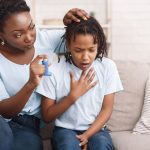
THURSDAY, Nov. 23, 2023 (Healthday News) — Thanksgiving marks the start of the holiday eating season, when everyone is constantly tempted by sweet treats, rich foods and fancy, high-calorie drinks. But before diving into decadent eating, consider trying to make healthy food choices during the festivities, one expert suggests. “The holidays are a time for celebration and social gatherings, delicious meals and an abundance of sweet treats. It’s a time when people look forward to indulging in their favorite dishes, but also take the time to enjoy the company of treasured friends and family,” said Dr. Luis Rustveld, an assistant professor of family and community medicine at Baylor College of Medicine in Houston. “Spending quality time with family and friends are integral to overall well-being and mental health. Starting these [healthier eating] habits during the holiday can lay the foundation for a healthier new year.” Any time of year can be a good time to adjust your diet, Rustveld noted, but the holidays may encourage more mindful eating because you can practice strategies like portion control, moderation and appreciating textures, flavors and smells of food. Taking your time while eating to focus on these details is one way to enjoy your meal and prevent overeating, he said. People should not deprive or limit the amount of food they eat in the days leading up to… read on > read on >

















